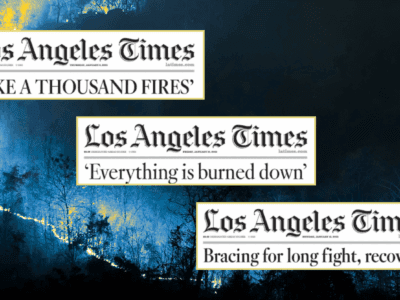Clean Air versus States Rights
A sleeper decision by the D.C. Circuit upholds federal air pollution authority.
The D.C. Circuit’s decision last week in Mississippi Commission on Environmental Quality v. EPA didn’t get a lot of attention, despite having a very significant constitutional ruling. Since the constitutional discussion doesn’t start until about page seventy, after many pages of scintillating discussion of matters like the reliability of private air pollution monitors and the meaning of the word “nearby”, I guess it shouldn’t be a surprise that the case has gone beneath the radar. But the constitutional issue is an important one relating to funding cutoffs. The issue has been in play ever since the Supreme Court held that it was unconstitutionally coercive for Obamacare to cut off funding for Medicaid to states that refused to expand their Medicaid programs. In this case, the cutoff is to federal highway funding if a state’s air pollution plan is invalid. Texas argued that the Obamacare ruling was directly on point.
The D.C. Circuit forthrightly rejected that argument. The Court was unsure that the coercion test even applied, given differences between the two funding position. The Clean Air Act provision has less of a punitive tone because it reallocates funding to highway programs in states that have done a better job in fighting air pollution. Also, the CAA cutoff provision has been around for a long time, and states have presumably been aware for many years that their highway funding was subject to this condition. The Obamacare provision, in contrast, might be seen as a kind of ambush.One might also add that highways are a big source of the problem that the CAA is aimed at, whereas state Medicaid programs were not making the health care situation worse than it would be if they didn’t exist.
Even if the coercion test does apply, the court held that the CAA cutoff was non-coercive. The total amount of state highway funding is much less than state Medicaid programs. Perhaps more importantly, the cutoff is not complete because safety-related projects are exempted. Finally, in the case before the court, only projects in a specific county would be affected, an even less consequential impact. This seems like a persuasive analysis to me unless the Supreme Court meant to invalidate any funding condition involving a non-trivial amount of money.
Texas also made another interesting but less weighty argument that federal regulation of air pollution is unconstitutional because air pollutants are not a commercial activity and don’t always cross state lines. But air pollution sources are heavily commercial (factories, trucks, etc.) and in fact a lot of pollution does cross state lines. The court disposed of this argument fairly easily.
My own sense is that the Obamacare ruling was heavily based on what the majority thought were the uniquely objectionable aspects of those provisions. For that reason, I doubt that Texas will be successful in getting the Supreme Court to review the Mississippi Commission case. But then, the Obamacare decision itself was quite surprising, especially the Court’s acceptance of the Medicaid challenge that had been rejected by all the lower courts. So we’ll just have to wait and see.
Reader Comments
4 Replies to “Clean Air versus States Rights”
Comments are closed.







Dan, is American Democracy in a state of chaos yet? It sure seems so when both state and federal governments and both political parties fail to protect our air quality, our environment, our food supplies, our water, our public safety, our human rights and our long-term future quality of life.
And we have now exceeded 400 ppm CO2 with no solutions in sight to control global warming that can be implemented today, so if we aren’t in a state of chaos yet, we most certainly shall be sooner than we are willing to admit.
Anthony said;
“……..And we have now exceeded 400 ppm CO2 with no solutions in sight to control global warming…….”
Dear Anthony,
While it is true there is no solution to control global warming, we can and will adapt and for this one should consider the merits of ice cold beer. That’s how we adapted, 400 ppm and the climate is cooling, don’t worry be happy. Have a good day.
BQRQ, your philosophy sounds like a Sacramento politician, that’s why our water supplies are down to one year or so.
The Medicare portion of the Sebellius decision was a disgrace. This attempted extension by Texas is proof. Hopefully other courts will follow the DC Circuit precedent and use any possible reason to limit Sebellius to its facts.
I didn’t understand why two of the liberals on the Court joined the Medicare portion until it was argued that they had to do it as a political trade, in order to bring Roberts over on the main opinion. Sounds distasteful, but quite possible.